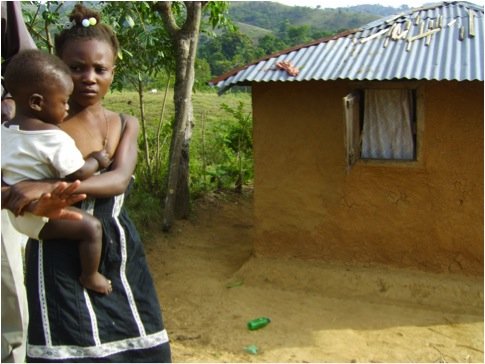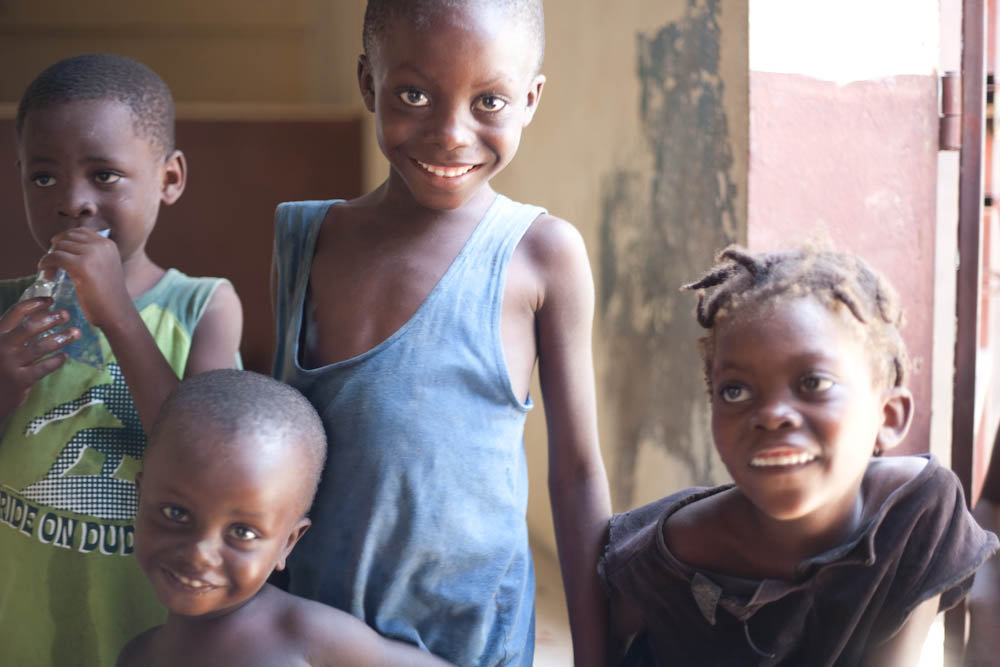By Jonnie Horner | Co-Founder
A huge thanks again on behalf of everyone at the appeal for your continued support of our work. The Maternity service in Haiti is developing really well, and we're continuously grateful for this being made possible by individuals like you. For those of you who don't often visit our web-site, we thought we'd share some extracts from a recent blog entry by our CEO when he returned to the UK in January.
'Returning to the UK is always a difficult transition after being in Haiti for a long stint, and this time perhaps I’ve found it the hardest after the tragic scenes witnessed through the cholera epidemic. It was indescribably hard to witness the lives of so many washed away simply because of this poverty driven disease.
There was one particular girl who was abandoned at our site because of the cholera situation. As one of our staff gathered a special little friendship with this girl, it became clear that the family who’d bought her to the centre, weren’t her real family. She was what the Haitians call a ‘restavec’, which basically means she stayed with a host family. This happens in different ways, but for this young girl was done in a manner we’d heard before. An inner city family had gone to the countryside where they’d found a poor family and offered to take one of the children to the city for a ‘better life.’ Poorer families are offered a new life for their child, with promises of education and a future, yet the reality is often quite different. Some do find this life, but others are subjected to a life of modern day slavery, where they take care of all the family chores, rarely ever leaving the home.
As the days passed by we began to capture something of her story and started searching for her real family. When we finally managed to trace her real parents we were left to say a sad good bye to our new found friend, but with the promise we’d visit her the following week. The re-union of her family was both precious but sad, with both father and child affected my the months of separation.
In my final few days in Haiti as promised, we traveled the long journey into the countryside where we entered a small, isolated, mountain village. Here, surrounded by Haiti’s incredible beauty was a small mud hut and an impoverished family. A young mother of 25 years of age, with 6 or 7 children, two of which had become restavecs. Sat outside on a small, humble wooden and straw woven seat was our dear friend, in a worn out nighty, which she wore as a dress, like a beautiful princess. We sat with the family and began to hear a little of their dilemma, though we didn’t need them to highlight why they’d had to let two of their children go. The poverty was all too clear an answer. The empty mud hut, the scantily dressed children, the lack of food, the school next door which they’d never be able to afford, and the lack of family planning and support which meant their family were growing faster than they could cope with.
75% of Haitians are unemployed, and about 75% of births take place at home without any real medical support. These two ’75′ related stats summed up for me the reality of why this family had been left so vulnerable, and reminded me of why our work is so important. Our maternity outreach work will support families like this one through education and family planning. Yet, as I’ve reflected on this one story, I was recently horrified by another ’75′ related statistic. The sad reality is that since the earthquake child trafficking like this has increased in Haiti, with significant problems within the large tent cities. A recent report by The Telegraph commented on how some children were being bought from families for as little as about 75p. It’s almost inconceivable that a child could seemingly be worth so little. Sold for 75p and bought into a new world of varying futures.
The first thought to describe such a reality for the outside world, apart from disbelief, is probably one of neglect. I’ve been asked numerous times how women in Haiti can give their children away, and why they neglect them like this. In nearly every case I have ever seen though, it has not been a case of a mothers neglect, but the neglect of the world. That the inequality of the globe can lead to such families as this girls, in 2011, living in a mud hut, with no food, no education and no future. The reality that some children are being sold for 75p is not a reflection of a neglectful mother, but of a desperate mother left with little or no other choice.
They have little choice, but we do. Supporting our maternity and health work has deeper repercussions that simple health care. Done well, it can help decrease the tragic risk of trafficking and the tragic consequences of such 75p transactions. It can provide huge social change, and stop the long term cycle of such inexcusable injustices. As we undertake what is by far our biggest year yet, I’d ask you to remember such children, and draw alongside our work. Your support can help us share the reality that life is more precious than ’75p.’
If you'd like to read more blogs please visit our web-site: www.haitihospitalappeal.org
Links:
Project reports on GlobalGiving are posted directly to globalgiving.org by Project Leaders as they are completed, generally every 3-4 months. To protect the integrity of these documents, GlobalGiving does not alter them; therefore you may find some language or formatting issues.
If you donate to this project or have donated to this project, you can recieve an email when this project posts a report. You can also subscribe for reports without donating.

